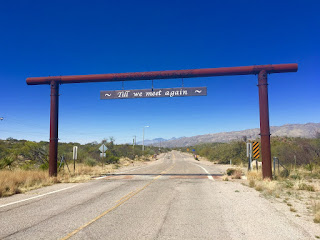Are you trained in the art of motor homing? Do you know what goes into the
making of a great RV trip? Are you aware of the little things that can make a
regular RVing experience outstanding? If you are wondering whether there is
some kind of secret that you must know about RVing, you are right. Thankfully,
this secret isn’t protected by fire-breathing dragons or mysterious ancient
gods. We, the time-tested RVers, are the guardians. Sit back as we open the
doors that lead to awesome RVing:
Be Open to Change
Not everything will go according to your plan during a motor home trip. No matter how well you plan, be it your packing list or travel schedule, there will be something unexpected to come up. So, be open to change. Adapt to new plans and travel routes on the go. The number one rule of RVing is -- have fun.
Not everything will go according to your plan during a motor home trip. No matter how well you plan, be it your packing list or travel schedule, there will be something unexpected to come up. So, be open to change. Adapt to new plans and travel routes on the go. The number one rule of RVing is -- have fun.
Pack Less
A motor home is not your home in the traditional sense of the term. You must remember that when packing for your next trip. ‘Pack light, travel right’ must be your mantra. Hence, pack just the essentials. Remember, it’s the travel experience that matters more than the material possessions you carry.
A motor home is not your home in the traditional sense of the term. You must remember that when packing for your next trip. ‘Pack light, travel right’ must be your mantra. Hence, pack just the essentials. Remember, it’s the travel experience that matters more than the material possessions you carry.
Prepare Yourself
Take some time out to prepare and make your motor home vacation more enjoyable. Make sure you have enough time to fish by a scenic lake or shoot a video of the spectacular waterfalls rather than spending all of your time cooking meals in your RV kitchen. Precook meals, store them in your RV refrigerator, and heat them later on. Keep medicines and a first aid kit handy to save hassles on the road.
Take some time out to prepare and make your motor home vacation more enjoyable. Make sure you have enough time to fish by a scenic lake or shoot a video of the spectacular waterfalls rather than spending all of your time cooking meals in your RV kitchen. Precook meals, store them in your RV refrigerator, and heat them later on. Keep medicines and a first aid kit handy to save hassles on the road.
Stop Along
The key attractions of a motor home trip include stopping by breathtaking spots, exploring the scenic mountain trails or staying overnight at a particularly appealing campsite. An RV trip gives you a lot of freedom. Therefore, avoid rushing from one spot to the other. Take your own time to explore a few of the stunning locales of America.
The key attractions of a motor home trip include stopping by breathtaking spots, exploring the scenic mountain trails or staying overnight at a particularly appealing campsite. An RV trip gives you a lot of freedom. Therefore, avoid rushing from one spot to the other. Take your own time to explore a few of the stunning locales of America.
Try Something New
Do things that you’ve never tried before. For example, visit a place that you’ve never seen or try some activities that you have always been scared to try. Seize this opportunity to taste the unknown.
Do things that you’ve never tried before. For example, visit a place that you’ve never seen or try some activities that you have always been scared to try. Seize this opportunity to taste the unknown.
There is so much to do and see when RVing. All you need is your motor home
and you are all set to drive on. RVing is all about living in the present, and
we have just told you how to do it.














